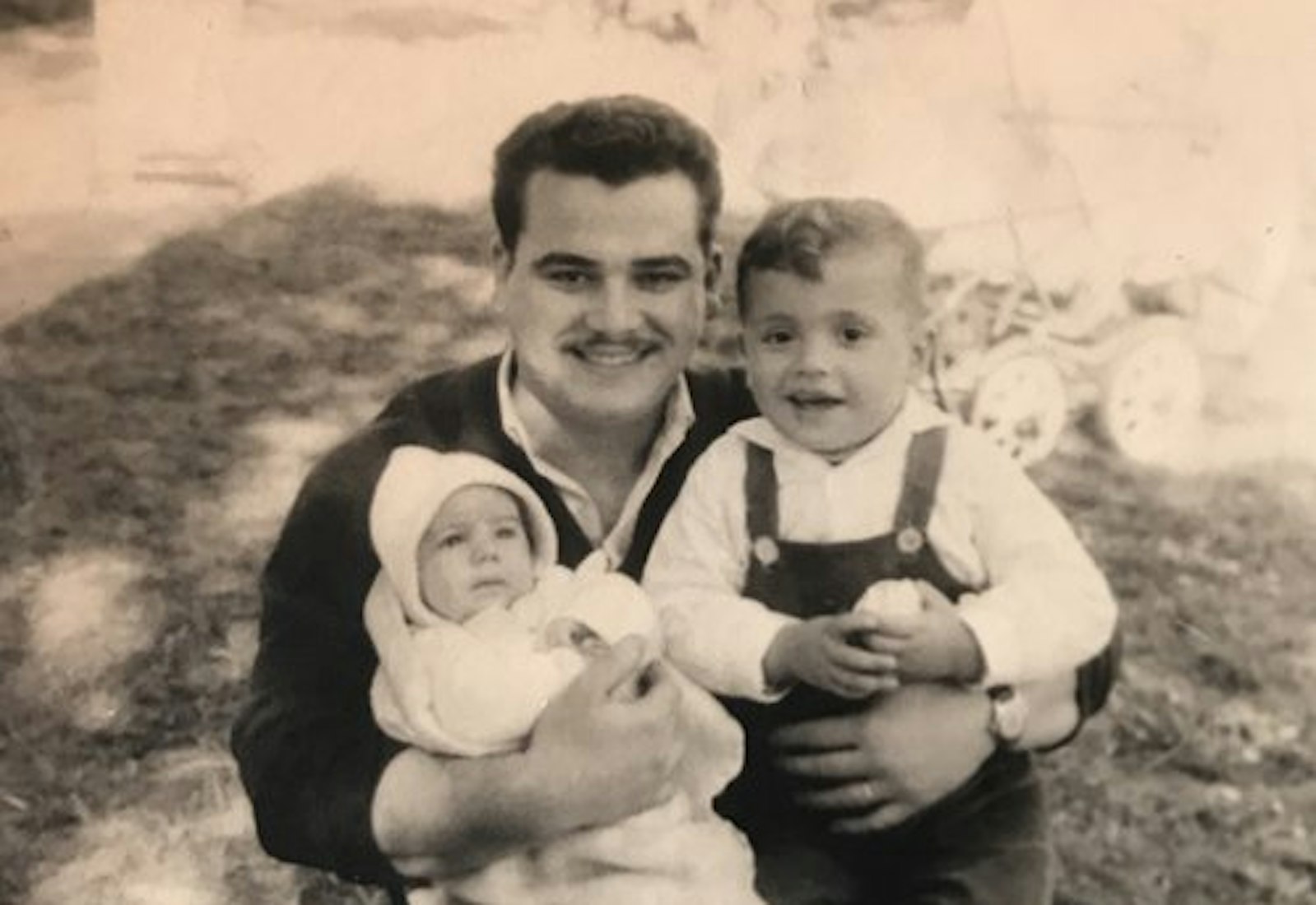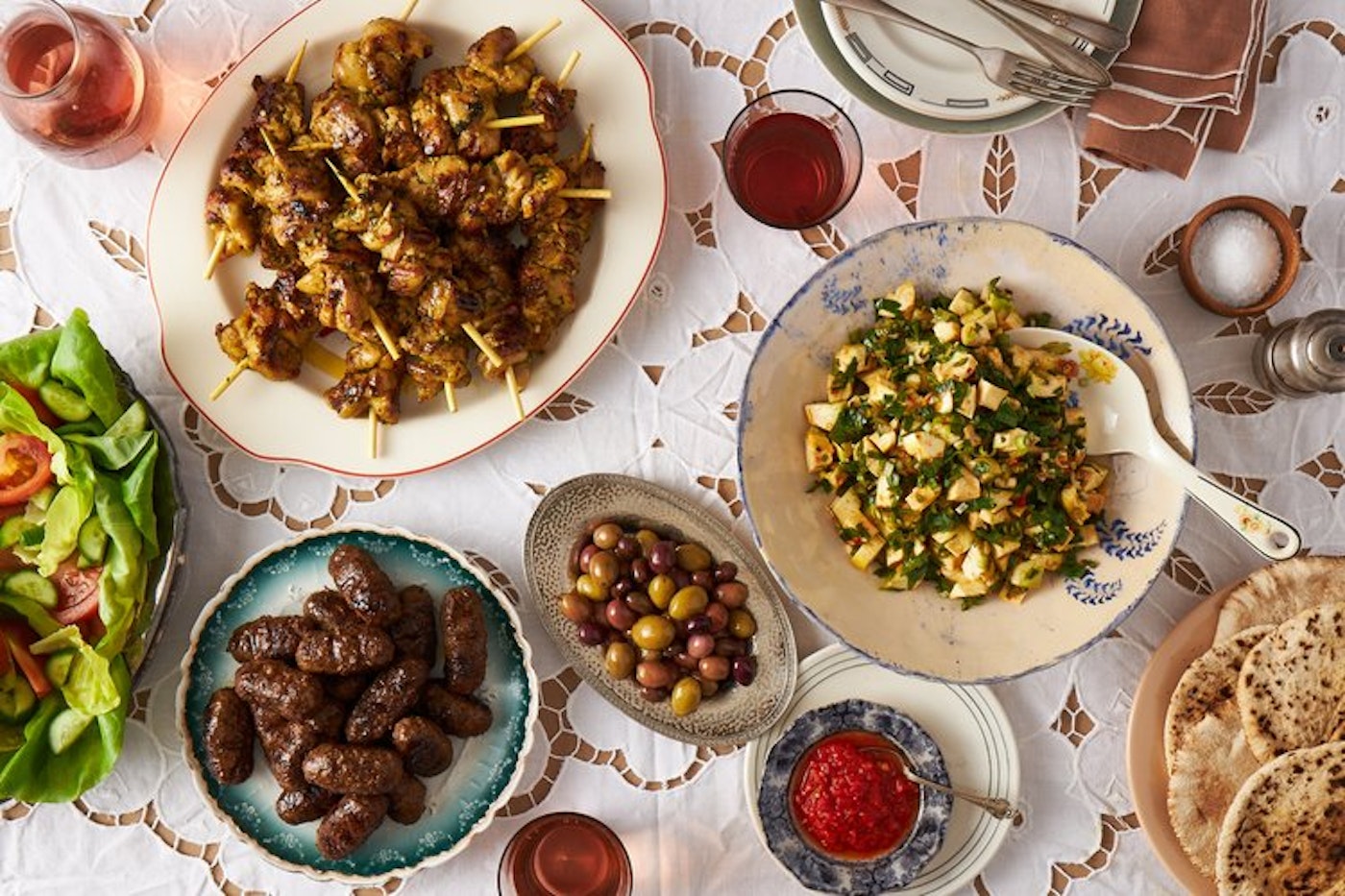Shared by Tiffany Kisluk


By Passover, it’s often warm enough to go swimming in Houston where Tiffany Kisluk’s family lives. When she was little, her aunts, uncles, and cousins would gather at her grandparents’ home for a barbecue the night before the holiday — and when it was hot, take a dip in their pool.
Nearby, her Tunisian grandfather George, manned the grill, making what the family calls mishwee — from the Arabic word mashwi, meaning grilled. He gently charred chicken skewers marinated with garlic, lemon, turmeric and olive oil, and patties of spicy merguez sausage. There was always pita on the table and an abundance of salads and dips like hummus, carrots with jalapeno, and fresh artichokes tossed with the Libyan condiment pilpelchuma, a mix of olive oil, garlic, paprika, and lemon juice. After dinner, Tiffany would help with the annual search for hametz, foods not kosher for Passover, that had to be cleaned out of the house before the holiday started the next day.
Barbecuing the night before Passover is a little-known custom outside of certain Tunisian and Moroccan Jewish communities. For some families, including Tiffany’s, it stems from the Pesach offering, the animals that were killed, first so ancient Israelites could mark their doorways with blood telling the Angel of Death to pass by their homes, and later as an offering before the holiday at the Temple in Jerusalem. In “The Book of Jewish Food: An Odyssey from Samarkand to New York,” Claudia Roden adds that there’s a custom among North African Jews to barbecue during the holiday “because that is how the Hebrews must have cooked in the wilderness during the Exodus from Egypt.”
In Tiffany’s family, the tradition comes from her grandfather George’s family who lived in Tunis through World War II and moved to Israel in 1955 where he met his wife Esther who was born in Libya and moved to the newly-founded state in 1949. Like many Jews arriving from Arab countries, they experienced discrimination in Israel. They “weren’t looked at as equals,” Tiffany explains. In the 1980s they moved with their children to Houston where George worked as a jeweler.
The family kept their North African traditions alive in Texas, celebrating Seudat Yitro, a Tunisian custom in the spring and listening to Arabic music as they barbecued; and, Esther continued to cook recipes from her family and ones she learned from her mother-in-law. Until George passed away, he and Esther hosted the pre-Passover barbecue beside their pool every year. Today, Tiffany’s uncle Jackie has taken it over. The menu hasn’t changed much, but there are a couple new additions, including guacamole, a small nod to where the family now lives.
The recipes and culture from North Africa, Tiffany says:
